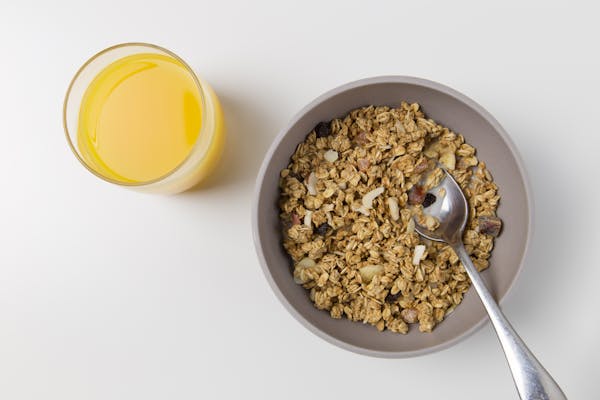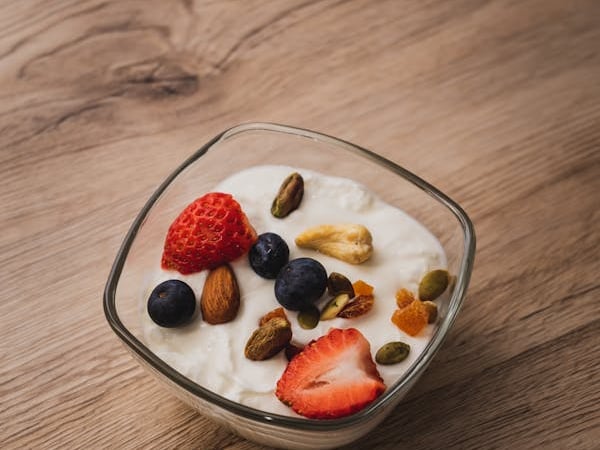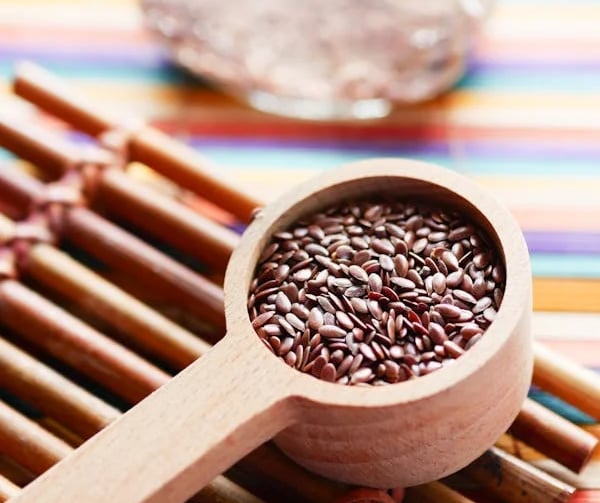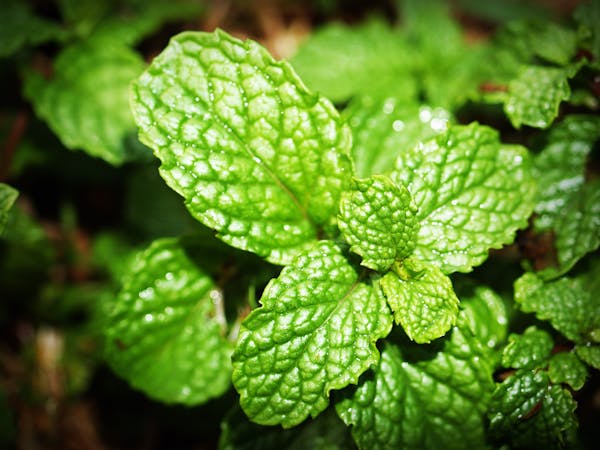Gut Health Revival!
Jennifer Jane, BSN, RN
6/4/20248 min read


Natural Strategies to Combat Constipation and Nourish Your Gut!
According to some studies, occasional constipation (1) affects up to 79% of adults, and chronic constipation (2) affects up to 28% of adults—the bloated, aching belly, straining to pass stools, and all-around discomfort. Help is on the way!
Do you rely on your “gut feelings” when making decisions? That gut feeling is rooted in science. Your gut and brain communicate (3), a critical reason for keeping your gut running smoothly. Preventing and relieving constipation and maintaining gut health with a balanced microbiome is essential to overall health and well-being.
Constipation is a common problem that can interfere with a balanced microbiome. Luckily, a healthy diet and lifestyle can help most of us prevent it or manage the occasional slow-moving day.
Let’s explore several simple, natural strategies that will help:
prevent constipation
nourish your gut
support optimal digestive health
help you feel your best


Understanding Constipation and Its Impact on Gut Health
Constipation (4) can lead to bloating, sluggishness, abdominal pain, hemorrhoids, or more severe effects such as impaction or anal fissures, which can bleed.
How do you know if you are experiencing constipation? Some common symptoms:
difficulty passing stools
hard, lumpy stools
infrequent bowel movements
a feeling of incomplete bowel emptying
bloating
abdominal discomfort
Your gut likes to keep things moving smoothly. Chronic constipation can lead to changes (5) in the types of bacteria in your gut, making it harder to stay regular. Keep your gut happy and healthy; it will help you feel that way in return!
Importance of natural remedies for managing constipation
Medications such as laxatives can help to relieve occasional constipation; however, long-term use of these medications can lead to your bowel's dependence (6) on them, which means continued use can lead to an increase in difficulty moving your bowels without laxatives. There is an easier way.
Natural remedies for managing constipation work, are healthy for your gut, and work with your gut’s needs. It’s a win-win!
The benefits of supporting gut health naturally
Supporting gut health naturally through nutrition, hydration, prebiotics, probiotics, herbal remedies, and a healthy lifestyle can help avoid or treat occasional constipation, promote a balanced gut microbiome, improve nutrient absorption, and enhance overall health.
Read on to learn more about the positive impact of each on keeping your gut and yourself happy and healthy.


The Science Behind Constipation
Constipation can occur for various reasons. Two common ones are diet choices and lifestyle habits. Understanding what causes constipation can help develop natural strategies for relief and prevention.
Exploring the Causes of Constipation
Constipation is often caused by elements within our control. Identifying the causes can help us avoid what slows us down and provide more of what our gut needs.
Dietary Factors contributing to constipation
Your diet choices (7) determine how well your bowels function. The following can slow bowel motility and lead to constipation:
Low fiber intake
Low water intake
High fat and sugar intake
Refined grains vs. whole grains
Processed foods vs. fresh, whole foods
Lifestyle habits exacerbating constipation
Your lifestyle has a lot to do with how well your bowel functions. Your bowel works best when you’re active, eat regular meals, and your body is relaxed.
These can make constipation worse:
Sedentary lifestyle — try stretching, walking, bike riding, or going to the gym. The more you move your body, the better you’ll feel, and the more you might enjoy it!
Irregular meal times — keeping to a regular mealtime schedule can help cue your body to move your bowels at regular times.
Stress — can slow down digestion and the movement of your intestines. Meditation and breathing exercises can help to relax your body and mind.


Fiber-Rich Foods for Gut Health
You need fiber for regular bowel movements. Fiber bulks the stool, making it easier to pass. Some fiber is also food for beneficial gut bacteria, keeping your gut happy. Slowly increase your diet's fiber over time to avoid abdominal discomfort.
Importance of Fiber in Promoting Regular Bowel Movements
Your gut needs two kinds of fiber (8) to work smoothly: Insoluble and soluble fiber.
What’s the difference?
Insoluble fiber is not digestible. It bulks up stool and helps speed its passage through the intestines. Some sources are bran, whole wheat, and nuts.
Soluble fiber is digestible and found in the inner parts of plants. It absorbs and dissolves in water, forming a slippery substance that can help soften stools and make them easier to pass. It also feeds and diversifies healthy gut bacteria. Some sources are oats, peas, and citrus fruit.
High-Fiber Foods to Incorporate into Your Diet
Fruits: berries, prunes, figs, kiwi, pears, avocado, and apples
Vegetables: Leafy greens, carrots, broccoli, and cauliflower
Whole Grains: Oats, quinoa, barley, and brown rice
Legumes: Beans, lentils, and chickpeas
Meal Ideas and Recipes to Support Gut Health and Relieve Constipation
Breakfast: Overnight oats with yogurt, chia seeds, and berries
Lunch: Roasted vegetable and quinoa salad
Dinner: Lentil or chickpea soup with whole-grain bread
Snacks: celery and nut butter or apple slices dipped in nut butter


Hydration and Gut Health
Staying hydrated is one of the most important ways to support your digestive health. You need water to help break down nutrients so your body can absorb them. Water also makes stools softer and easier to pass.
Understanding the Role of Hydration in Digestive Health
Water helps to lubricate the digestive system, so it functions smoothly. Dehydration can slow gut motility, leading to hard stools and constipation.
Best Drinks for Staying Hydrated and Supporting Bowel Movements
Water: Plain water is the best and easiest choice.
Herbal Teas: Ginger tea and Peppermint tea can help ease digestion.
Fruit-Infused Water: Adding lemon, lime, orange slices, cucumber, or berries can make water more appealing.
Tips for Increasing Water Intake for Better Gut Health
Try a mug of hot water with lemon first thing in the morning.
Carry a reusable water bottle with you and drink from it all day.
Replace some of your caffeinated beverages with herbal teas.
Set an alarm on your phone to remind you to drink water hourly.
Eat hydrating foods like oranges, cucumbers, and watermelon.


Probiotics and Prebiotics for Digestive Support
You need both probiotics and prebiotics to nourish your gut microbiome. They go together like peanut butter and jelly.
Exploring the Benefits of Probiotics for Gut Health
Probiotics (9) are beneficial, live bacteria that help to balance the gut microbiome. Studies (10) have shown probiotics improve gut motility, soften stools, and promote regular bowel movements.
Prebiotic Foods to Nourish the Gut Microbiome
Prebiotics (11) are non-digestible plant fibers that serve as food for probiotics. Foods rich in prebiotics include:
Bananas
Asparagus
Garlic and Onions
Whole grains
Soybeans
Artichokes
Flaxseed
Incorporating Probiotic-Rich Foods and Supplements into Your Diet
Yogurt: Choose plain, unsweetened yogurt with live cultures
Natural, unpasteurized cheeses are a great source of probiotics
Kefir: A fermented dairy milk drink rich in powerful probiotics.
Sauerkraut and Kimchi: Fermented vegetables that support gut health.
Probiotic Supplements: It’s best to get probiotics from food, but there may be instances when your healthcare provider finds a supplement beneficial. Check with your provider to see if probiotic supplements are recommended for you.


Herbal Remedies for Constipation Relief
Herbal remedies (12) have been used for hundreds of years and can provide practical and gentle relief from constipation without the risk of dependency on chemical laxatives. Many plants have medicinal properties and are effective in promoting gut health.
Herbal Remedies for Digestive Support
Peppermint: Helps to relax the digestive tract and relieve discomfort.
Ginger root: Stimulates digestion and can help relieve gas and bloating.
Turmeric Extract: Promotes bowel health.
Top Herbs for Relieving Constipation
Senna: A natural, effective laxative.
Aloe Vera: Can promote regular bowel movements.
Slippery Elm: Eases the passage of stools.
How to Use Herbal Remedies Safely and Effectively
Follow recommended uses and dosages.
Ask your healthcare provider before using any herbal remedies to ensure they are safe for you and will not interact with any medications you may be taking.


Lifestyle Changes for Healthy Digestion
Committing to regular exercise and stress management can improve digestive health and abdominal comfort and prevent constipation.
Importance of Regular Exercise for Promoting Gut Motility
Regular physical activity stimulates the digestive system, promoting regular bowel movements. Try to get at least 30 minutes of moderate exercise several days a week, such as walking, swimming, dancing, or cycling.
Stress Management Techniques for Digestive Health
Studies have shown that psychological stress (13) significantly impacts gut microbes, motility, intestinal sensitivity, secretions, and permeability. Stress can negatively affect digestion and contribute to constipation.
Stress management techniques can help relieve stress and nurture gut health:
Yoga
Meditation
Deep breathing exercises
Mindfulness
Journaling
Establishing a Healthy Routine for Optimal Bowel Function
Eat your meals at about the same time daily to regulate your digestive system.
Listen to your body’s signals. Don’t ignore the urge to move your bowels. Ignoring the urge can lead to constipation.
Establish a bedtime routine to ensure adequate sleep, which helps your systems perform optimally.


Natural Laxatives and Digestive Aids
Natural laxatives can offer gentle relief from occasional constipation without the harsher effects of chemical laxatives.
Gentle Laxatives for Occasional Constipation Relief
Prunes: Naturally high in fiber and sorbitol, prunes can help move your bowels.
Ground Flaxseeds: Rich in fiber and omega-3 fatty acids, flaxseeds can promote regular bowel movements. Drink plenty of water when taking flaxseed.
Herbal Teas and Remedies for Promoting Bowel Movements
Senna Tea: A natural laxative, it provides effective relief from constipation.
Dandelion Tea: A gentle laxative that also supports liver health.
Tips for Using Natural Laxatives Safely and Effectively
Start with small amounts to see what works for your body.
Avoid long-term use of laxatives. You want your healthy diet and lifestyle to promote your healthy bowel.
Consult your healthcare provider if constipation persists, your bowel habits change, or you have any questions or concerns about your bowel health.


Gut Health Supplements
Supplements (14) can help improve gut motility and digestive function. It’s best to get essential nutrients through a varied, fresh-food diet, but your healthcare provider may recommend supplementation if you have a deficiency.
Essential Nutrients for Supporting Gut Health
Magnesium: Helps to relax intestinal muscles and promote regular bowel movements.
Vitamin D: Supports gut barrier function and helps the gut immune response
Vitamin A: Protects the mucosal barrier of the intestine
Omega-3 Fatty Acids and Their Role in Digestive Function
Omega-3 fatty acids (15) are anti-inflammatory and have properties that help maintain an abundant and diverse microbiome and improve digestion.
Good sources of Omega-3 Fatty Acids are:
Flaxseeds
Chia seeds
Sardines
Mackerel
Salmon
Dosage and Precautions When Using Gut Health Supplements
Follow the recommended dosage instructions.
Ask your healthcare provider before taking supplements, especially if you have underlying health conditions or are taking other medications.


Bottom Line
Adopting a holistic approach to digestive wellness
Making positive diet changes, staying hydrated, including probiotics and prebiotics in your diet, using herbal remedies when needed, and getting plenty of exercise can help you develop a smoothly operating digesting system and a robust gut microbiome that can positively affect every aspect of your health.
Take control of your gut health naturally
Supporting your gut health is simple but profoundly affects your well-being.
Take care of your gut health in these simple, natural ways, and it will take care of you!
© 2025 Salo Content Writing LLC, all rights reserved
Join the Movement for a Healthier Planet! 🌿
Subscribe now and get your FREE Sustainable Living Checklist! Plus, enjoy weekly articles and delicious plant-based recipes straight to your inbox. Let’s make sustainable living simple and inspiring, one email at a time! 💚✨
